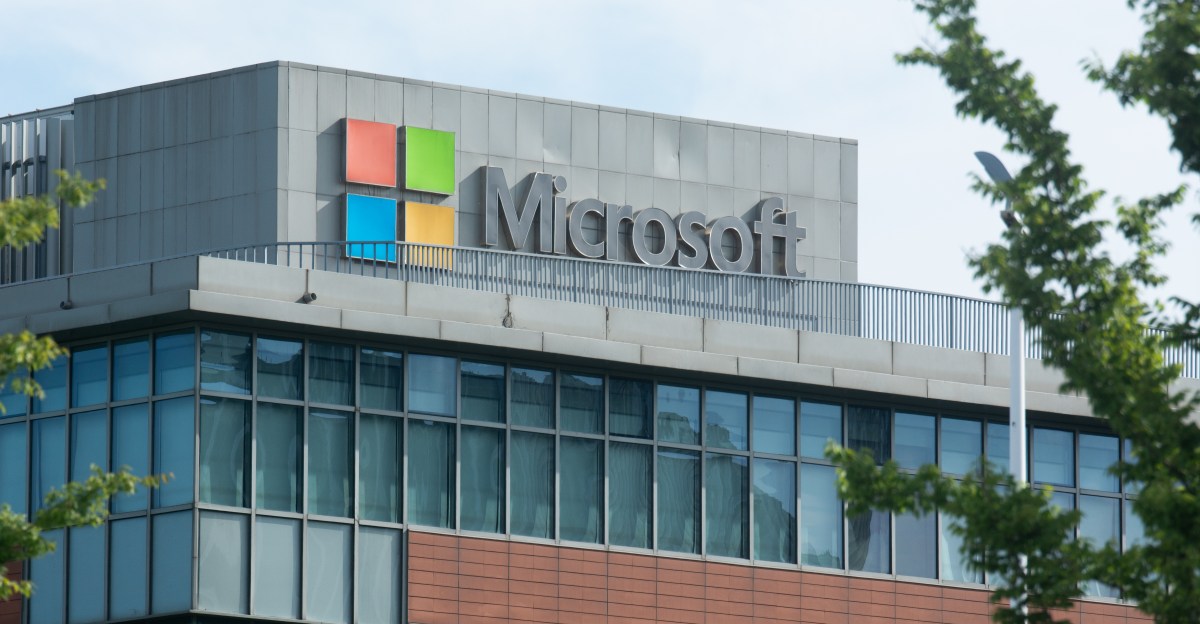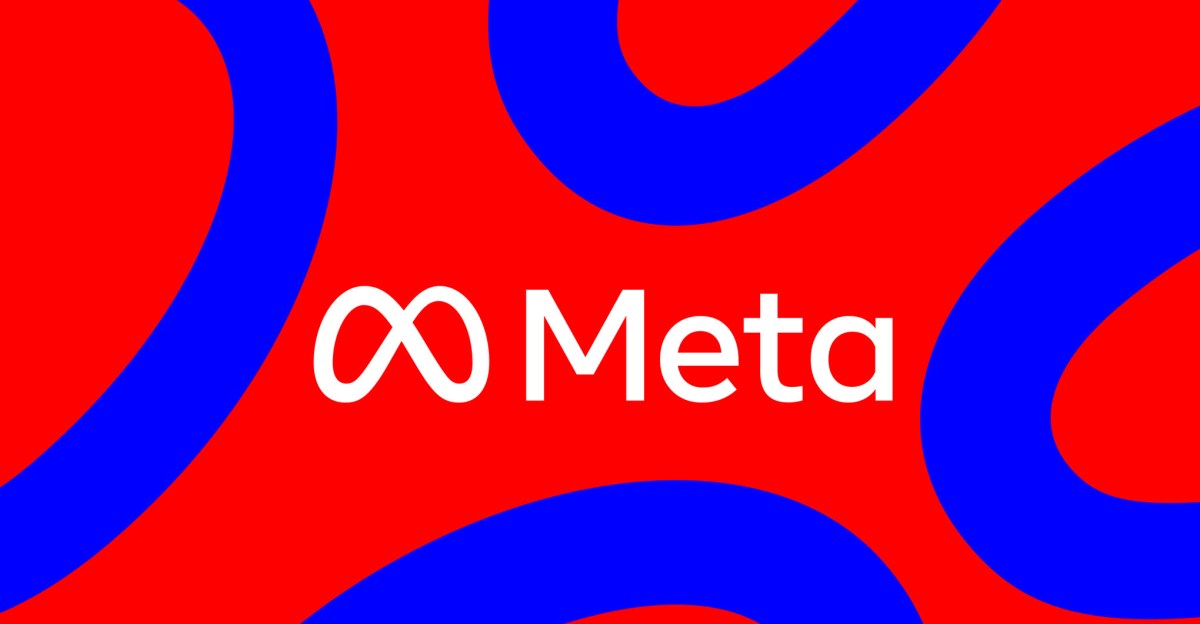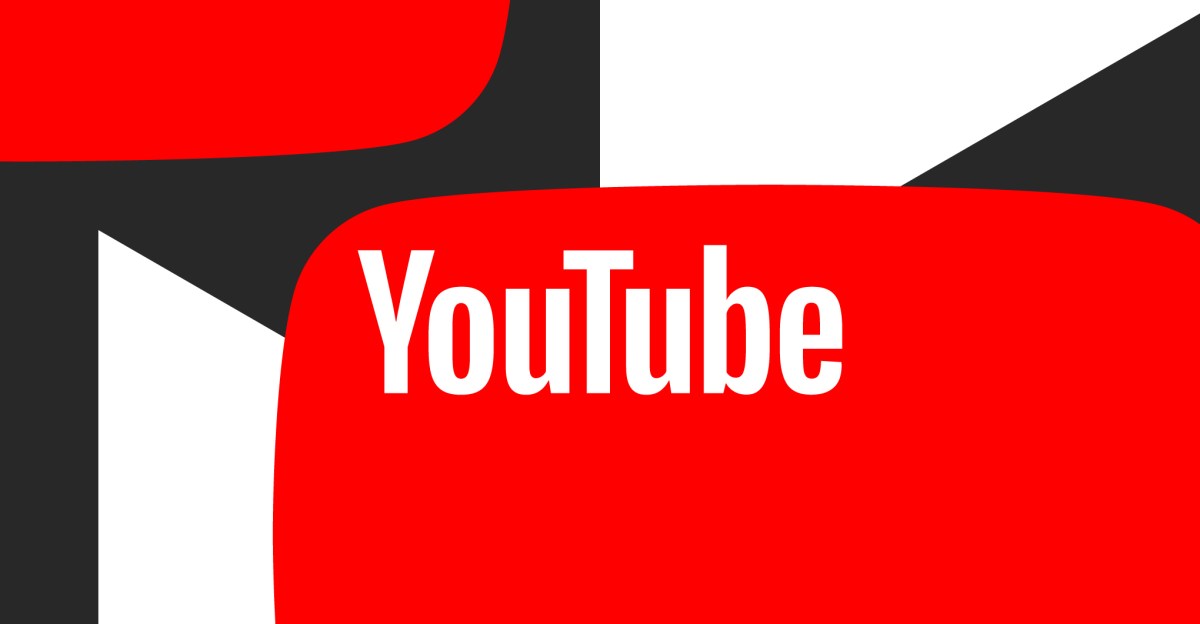I can’t open LinkedIn without seeing a new post from a Microsoft employee who lost their job in the company’s latest round of layoffs. Around 15,000 jobs have been eliminated at Microsoft over the past couple months — the biggest cuts at the company in more than a decade.
Latest Tech News
Microsoft’s constant layoffs risk creating a culture of fear

I’ve spoken to more than a dozen Microsoft employees in recent weeks, and everyone is concerned about the company’s direction in this AI era. Morale is at an all-time low, and employees are worried that regular layoffs are simply the new normal.
Sources tell me that Microsoft’s leadership team had the choice between reducing investment in AI infrastructure for the upcoming financial year or deeply cutting its headcount and operating expenses. It’s very clear what route Microsoft chose.
These layoffs have been both broad and brutal. While you’ve likely read the headlines about the impact on Xbox games studios, Microsoft’s other cuts go far deeper and are part of a bigger plan to restructure Microsoft around AI tools.
Microsoft has laid off technical specialists, business strategy experts, and product managers. The sales side of Microsoft, which is responsible for businesses adopting its latest technology, has been hit particularly hard. Even AI and cloud sales teams have seen cuts, and account managers across a variety of Microsoft products have lost their jobs, too.
Microsoft’s layoffs have also impacted roles internationally, where an AI operations manager in Portugal proved susceptible to Microsoft’s latest reductions. Some employees even discovered they had lost their job while on vacation, and one was laid off twice in around six months.
This doesn’t mean MS is necessarily reducing headcount overall, as employees like Patrick Lyons are being forced to apply for other roles. That could mean Microsoft’s headcount might actually be similar this year to 2024.
Experienced veteran employees were also cut recently. Former engineering manager HongQiao Li had spent nearly 21 years at Microsoft prototyping the early version of Copilot in Office, before the latest cuts. Trinh Tran, a senior partner technology strategist, had dedicated 23 years to Microsoft while building solutions for the company’s cloud business and championing accessibility. Business strategy expert Darron Inman joined Microsoft in 1996 and is “disappointed that I didn’t quite make it to the 30-year mark.”
Microsoft’s gaming business has been heavily impacted by the latest cull. Rare’s Everwild and The Initiative’s Perfect Dark games have been canceled, with The Initiative shutting down as a result. Blackbird, a new game from ZeniMax Online Studios, impressed Microsoft Gaming CEO Phil Spencer earlier this year, but it was canceled anyway. Blizzard is also sunsetting its Warcraft mobile game, just months after Activision wound down its Call of Duty: Warzone mobile game.
Forza Motorsport developer Turn 10 Studios was also hit hard by Microsoft’s cuts. One source described the layoffs as leaving enough people behind to keep the game up and running. It looks like Turn 10 will simply be a support studio for the Forza franchise, so I doubt we’ll see another Motorsport entry from the team.
Raven, Sledgehammer Games, Rare, ZeniMax Online Studios, Halo Studios, and King have all been impacted by the Xbox cuts. King, which is behind Candy Crush, is preparing to cut as many as 200 staff, with the London-based Farm Heroes Saga team already being cut in half. Laid off King staff are reportedly being replaced by the AI tools they helped build.
At Irish developer Romero Games, 100 jobs are also at risk after Microsoft pulled funding for a project they were working on. Microsoft reportedly had a meeting with Romero the day before the financing dried up, without any mention of the decision. Romero is now looking for another publishing partner for its game to avoid the studio’s closure.
Rare’s Gregg Mayles, a 35-year veteran, is leaving Microsoft following the Everwild cancellation, alongside Louise O’Connor, executive producer of Everwild. ZeniMax president Matt Firor is departing after 18 years leading the studio.
Microsoft has also cut its Xbox user research team in half. It’s a key team that focuses on ensuring quality across Xbox games, the platform, and developer tools. Without user research teams, Microsoft could have more games shipping in a poor state like Redfall. The Xbox cuts have impacted community managers, designers, and branding experts, too.
While Microsoft didn’t “feel the burn” by launching a fiery Xbox controller in parallel with gaming layoffs this year, it still had some tone-deaf mishaps this time around.
Xbox executive producer Matt Turnbull recommended that laid off employees seek advice from AI chatbots to “help reduce the emotional and cognitive load that comes with job loss.” The ID@Xbox team sent out an email blast about an AI roundtable at Gamescom as creatives rightfully worry about being replaced by AI.
“Using AI is no longer optional” inside some parts of Microsoft, as Julia Liuson, president of Microsoft’s developer division, proclaimed in an internal memo recently. Microsoft is reportedly now asking some managers to evaluate employees based on how much they use AI tools. Judson Althoff, Microsoft’s chief commercial officer, even boasted — in the same week that Microsoft slashed jobs — about the company saving more than $500 million last year in just its call centers thanks to AI.
To top off the mishaps, principal developer lead Mike Matsel posted a sloppy, AI-generated “Xbox Graphics is hiring” image on LinkedIn, with a monitor’s display on the wrong side. Microsoft has been regularly posting AI slop to its corporate blogs for more than a year now, without a care in the world about how bad the images look, so it’s not surprising to see more employees following along.
This AI slop is generated by the same tools that Microsoft is trying to convince businesses to use. The company is still struggling to sell its $30 per user, per month Copilot subscription, and the layoffs that have impacted Microsoft’s sales teams are part of a broader restructuring effort to bring in more technical salespeople to better demonstrate AI tools to businesses. To that end, Microsoft is reportedly replacing traditional salespeople with “solutions engineers.”
Microsoft is competing with Google, Anthropic, Amazon, and even its AI partner OpenAI for a slice of the enterprise AI pie. If you mix that with AI infrastructure costs, you get the type of constant mass layoffs we’ve seen at Microsoft over the past 18 months.
The atmosphere inside Microsoft is now very different from just a decade ago, when Microsoft was considered cool again and Satya Nadella had just been promoted to CEO and overhauled the company’s culture to embrace a world beyond Windows. That culture change saw Microsoft make some huge acquisitions like LinkedIn and GitHub, and saw it really capitalize on the shift to cloud computing. Now, Microsoft risks creating a culture of fear as it pushes employees to adapt to the promises of AI, where surprise “performance-related” job cuts can happen at any time, all because it’s in an uncertain AI race that’s costing tens of billions of dollars.
- Mercedes-Benz will let you use an in-car camera in Microsoft Teams while driving. You’ll soon be able to join a Microsoft Teams call in some Mercedes‑Benz vehicles and use the in-car camera to chat with colleagues while you’re driving. It’s part of a new update to the Teams app for the all-new CLA, making Mercedes‑Benz the first automaker to enable in-car camera use for Microsoft Teams while a car is being driven. Thankfully, while you can share a video stream of yourself merrily driving along, you won’t be able to see any shared screens or slides while you’re in motion. Microsoft and Mercedes‑Benz are also working together to integrate Microsoft 365 Copilot into cars, which is described as the hellish scenario of having “the potential to transform the vehicle into a third workspace.”
- Microsoft’s Copilot Vision AI can now scan everything on your screen. Microsoft is rolling out an update to Copilot Vision for Windows that lets the AI tool see everything on your screen. Copilot Vision requires you to share your screen with it, unlike Recall, which automatically takes snapshots. It’s similar to sharing a screen during a video call, giving you full control over the experience. The early versions of Copilot Vision are basic, but it’s clear Microsoft is moving toward a future where an AI assistant will be able to guide you through using apps or games.
- Skype for Business gets a few more months of support. Microsoft is giving Skype for Business a few extra months of support. While the main Skype consumer app closed down earlier this year, Skype for Business 2015 and 2019 are set to reach end of support in October. Now, businesses will be able to purchase extended security updates for Skype for Business, but only for an extra six months, bringing extended support up to April 14th, 2026.
- Xbox tests letting you stream your own games on PC. The “stream your own game” feature on Xbox consoles is arriving on PCs soon. Xbox Insiders with a Game Pass Ultimate subscription can now test streaming Xbox games they own, including console-only titles, through the Xbox PC app. Xbox currently lets you stream more than 250 games from your library, in addition to the titles found on Game Pass.
- Copilot Plus PCs get a new describe image feature. Microsoft has started testing a new option in the Click to Do feature that uses AI to generate a written description of an image or chart. It’s arriving first on Qualcomm-powered Copilot Plus PCs, and uses local AI models.
- Microsoft will halt new Office features for Windows 10 in 2026. Microsoft has quietly revealed that it will stop adding new features to Office apps (Microsoft 365) for Windows 10 users as of August 2026. While security updates will remain in place for Office apps running on Windows 10 until October 2028, Microsoft will gradually cut off new feature support next year.
- Microsoft has a new trick to improve laptop battery life on Windows. Microsoft has started testing a new adaptive energy saver mode that will automatically enable or disable the main energy saver mode, based on your laptop’s workload rather than just its amount of battery life left. It will only be available on devices with batteries, and it will automatically enable or disable without affecting screen brightness.
- Windows 11’s new Black Screen of Death is now rolling out. Microsoft is changing its Blue Screen of Death (BSOD) to a newly designed black version. It’s the first major change to the BSOD since Microsoft added a sad face to the screen in Windows 8, and it is now removing that frowning face and QR code in favor of a more simplified black screen. I personally think this looks far too similar to the black screen you see during a Windows update, but after the blue screen CrowdStrike incident, I can see why Microsoft wants to drop the color blue.
- Microsoft scraps Windows 11’s simplified taskbar system tray. Microsoft started testing a simplified data and time layout for the system tray and taskbar on Windows 11 more than a year ago, and it has now been scrapped. The layout changes meant the AM / PM indicators would be removed, along with the year on the date. “The feedback we got about that was not pleasant,” said Brandon LeBlanc, from the Windows Insider team, on X.
- Google Cloud loses a high-profile AI customer to Azure. Replit is moving its coding platform to Microsoft Azure, ditching Google Cloud in the process. The move will allow developers to build on Replit and then deploy immediately to Microsoft Azure’s infrastructure and marketplace — giving them direct access to enterprise customers. Google has featured Replit as a key customer in the past, so this one will sting for the third-place cloud provider.
- Microsoft shareholders prod the company’s ties to the Israeli military. Some Microsoft employees have been protesting the company’s contracts with the Israeli government in recent months, and now shareholders are putting the pressure on, too. A group of investors is asking the company to assess how it identifies customers who misuse its AI tools. A shareholder resolution could be voted on at the company’s annual meeting in December. If successful, it would ask the board to commission a public report on how Microsoft stops its AI and cloud tools from being used in ways that violate human rights or international laws.
- The Windows and Xbox handheld gaming UI is starting to show up. As we get closer to the launch of the Xbox Ally handheld devices, parts of how Windows is adapting to this hardware can now be seen in the latest builds of the OS. Windows watcher phantomofearth has discovered a new setup interface that suggests it will be handheld-friendly. I expect that we’ll see a lot more of the Xbox and Windows interface in the coming months, as Microsoft and Asus get ready for an October launch.
I’m always keen to hear from readers, so please drop a comment here, or you can reach me at notepad@theverge.com if you want to discuss anything else. If you’ve heard about any of Microsoft’s secret projects, you can reach me via email at notepad@theverge.com or speak to me confidentially on the Signal messaging app, where I’m tomwarren.01. I’m also tomwarren on Telegram, if you’d prefer to chat there.
Thanks for subscribing to Notepad.
Latest Tech News
Meta is playing the AI game with house money

Mark Zuckerberg’s AI hiring spree is costing a lot of money. His investors don’t care.
Meta’s stock price shot up over 10 percent on Wednesday after the company reported better-than-expected earnings. Revenue generated in the second quarter was $47.5 billion, up 22 percent from a year ago. Daily users across Facebook, Instagram, Threads, and WhatsApp grew to almost 3.5 billion. Meta also warned Wall Street that it would spend more on data centers and hiring next year. In response to all this, the company’s valuation increased by over $175 billion, or more than 12 Scale AI deals.
”Our business continues to perform very well, which enables us to invest heavily in our AI efforts,” Zuckerberg said during today’s earnings call. Meta’s cash cannon is now fully pointed at his new moonshot of achieving superintelligence, or as he puts it, AI that “surpasses human intelligence in every way.” He bragged about providing the richly compensated members of his new superintelligence lab “access to unparalleled compute” for training new models that will “push the next frontier in a year or so.”
Zuckerberg’s last moonshot was the metaverse, which came up only once at the very end of today’s earnings call. It’s too early to compare the two projects, but they share a key similarity: they need the kind of funding that only a company like Meta can provide.
Where AI differs from the metaverse, however, is that it appears to be already improving Meta’s ads business. A new AI model for delivering ads has driven approximately five percent more conversions on Facebook and three percent more conversions on Instagram, according to CFO Susan Li. Large language models are also starting to power how posts are ranked in feeds across the company’s apps, including Threads.
While Meta is still spending heavily on the metaverse (it’s on track to spend a total of $100 billion on its Reality Labs division this year), there’s no mistaking the fact that AI is officially Zuckerberg’s top priority. This time, though, he’s playing catch-up in a heated race, not trying to invent a new platform from scratch. The stakes are much higher, even if he’s playing the game with house money.
Latest Tech News
YouTube tells creators they can drop more F-bombs

YouTube videos with strong profanity in the first seven seconds (words like “fuck”) are now eligible for full monetization, according to a video from Conor Kavanagh, YouTube’s head of monetization policy experience. Previously, these kinds of videos were only eligible for “limited ad revenue.”
Changes to YouTube’s inappropriate language policies have long been a sore spot for creators. In November 2022, the company began to potentially limit ad revenue if profanity was used in the first 8–15 seconds of a video. ProZD, whose real name is SungWon Cho, published a video where, after waiting 15 seconds, he called the policy change “the dumbest fucking shit I’ve ever heard.” (He later said that the video was demonetized.) YouTube adjusted its policies in March 2023, including allowing videos with profanity in the first 8–15 seconds to be eligible for ad revenue.
I asked ProZD his thoughts about Tuesday’s change. “It’s about fucking time.”
The company originally restricted monetization for videos with swearing at the start of videos to “align with broadcast standards,” Kavanagh says. “Advertisers expected ads on YouTube to have distance between profanity and the ad that just served.” However, “those expectations have changed,” he says, “and advertisers already have the ability to target content to their desired level of profanity.”
While the only specific example of “strong” profanity Kavanagh provides is “fuck” — he says that YouTube defines “moderate profanity” as words like “asshole” or “bitch” — “you get the idea,” he says.
YouTube will continue to limit monetization if you use moderate or strong profanity in titles or thumbnails. Videos with a “high frequency” of strong profanity are also still a “violation” of YouTube’s advertiser-friendly content guidelines, Kavanagh says. “You have to pick and choose your fucks carefully.”
Latest Tech News
The controversial legal tactic The Trump Organization is using to take down fake merch

Unauthorized merch promoting Donald Trump — from hats and mugs to signs and T-shirts — is everywhere online. Go to a Trump rally or other MAGA political event and you’re bound to find people hawking their DIY Trump wares.
The Trump Organization apparently isn’t too pleased.
A lawsuit filed last week claims online sellers on platforms like eBay, Amazon, and Walmart are hawking goods that infringe on the Trump Organization’s trademarks.
“Defendants design the online marketplace accounts to appear to be selling genuine TRUMP Products while selling inferior imitations of such products,” the suit, filed in US District Court in Florida, reads.
But The Trump Organization’s lawsuit isn’t your run-of-the-mill trademark case — look at the filing and you won’t find a list of sellers the firm is going after. Instead, there’s a vague stand-in for the defendants: “The individuals, corporations, limited liability companies … identified on Schedule A.”
These lawsuits are a way to go after dozens, hundreds, or even upwards of a thousand online storefronts all at once, making it much cheaper for plaintiffs. Schedule A suits are regularly filed under seal, meaning there isn’t the same level of public transparency. At times, plaintiffs have been able to get extraordinary remedies in court, like getting defendants’ assets frozen — including in a case I wrote about where an Amazon seller was unable to withdraw $50,000 in earnings.
These types of lawsuits get their name from the separate “Schedule A” form that’s filed to court — often under seal — listing all the online storefronts being sued. While it’s true that the web is filled with knockoffs, some experts have argued that Schedule A suits at times go overboard and raise due process concerns for the entities being accused of selling infringing products.
I’m not a judge or a trademark expert, so I will make no judgment on the merits of The Trump Organization’s claims. But it’s fascinating to see the president’s private business take up the same legal tactic that’s used by brands like Nike. Fake (or, to be more precise, unauthorized) Trump merch feels part and parcel with the MAGA ecosystem, whether it’s a homemade Trump yard sign or bloody post-assassination attempt pictures being plastered on T-shirts for sale on Etsy.

 Fintech1 week ago
Fintech1 week agoOpenAI and UK Government Partner on AI Infrastructure and Deployment

 Latest Tech News2 weeks ago
Latest Tech News2 weeks agoThe tech that the US Post Office gave us

 Cyber Security1 week ago
Cyber Security1 week agoMicrosoft Fix Targets Attacks on SharePoint Zero-Day – Krebs on Security

 Latest Tech News1 week ago
Latest Tech News1 week agoTrump wanted to break up Nvidia — but then its CEO won him over

 Artificial Intelligence2 weeks ago
Artificial Intelligence2 weeks agoApple loses key AI leader to Meta

 Latest Tech News5 days ago
Latest Tech News5 days agoGPD’s monster Strix Halo handheld requires a battery ‘backpack’ or a 180W charger

 Cyber Security7 days ago
Cyber Security7 days agoPhishers Target Aviation Execs to Scam Customers – Krebs on Security

 Artificial Intelligence1 week ago
Artificial Intelligence1 week agoWhy Apple is playing it slow with AI

















